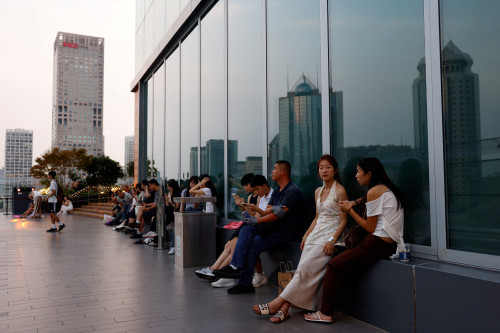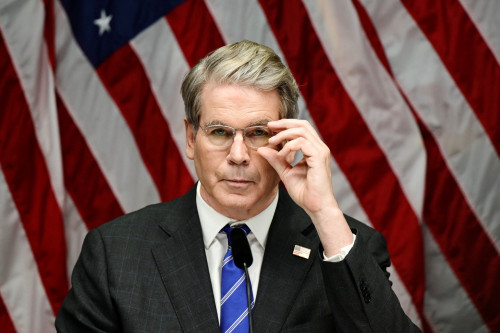PARIS (Reuters) – French President Emmanuel Macron on Monday said that a long-anticipated Ukrainian counter-offensive against occupying Russian forces had started, and he promised more military aid to the Kyiv government.
At a press conference after a meeting with Polish and German leaders, the so-called Weimar Triangle, Macron said: “We have done everything to help it.”
“We have intensified the delivery of ammunitions, weapons and armed vehicles … We’ll continue in coming days and weeks,” said Macron, who in recent days said he had spoken with Ukrainian President Volodymyr Zelenskiy confirming the start of the counter-offensive.
Asked whether Germany agreed Ukraine needed to be given security guarantees at a NATO summit in July, German Chancellor Olaf Scholz said: “It’s clear we need this and we need it in a very concrete way,” he said.
Ukraine on Monday claimed new gains in the early phase of the counter-offensive, saying its forces recaptured seven villages from Russian troops along an approximately 100-km (60-mile) front in southeastern Ukraine.
The three-way meeting in Paris was meant to send a signal of unity between eastern and western Europe, after Warsaw took on a major logistical and diplomatic role in helping Ukraine, while often castigating German and French leaders for being too slow.
Macron said the meeting was proof that there was no division between “old” and “new” Europe, a distinction once made by the United States when eastern European countries refused to back France and Germany over the war in Iraq 20 years ago.
However, divisions emerged during the short question-and-answer session with journalists.
Both Macron and Scholz said they supported the migration deal agreed by EU ministers last week, in which EU countries unwilling to take in refugees at home would be asked to give a financial contribution to their hosting peers.
But Polish President Andrzej Duda said he was “skeptical”.
“We took in those who needed help in Poland … we helped, to be honest, we did not receive any particular help especially from EU institutions,” he said.
“I hope that no institution in the EU will come up with an idea to punish us for the fact that while still having the perspective of more Ukrainian refugees arriving, we are skeptical about accepting migrants from other directions as well.”
(Reporting by Michel Rose and Dominique Vidalon in Paris; Sarah Marsh in Berlin and Anna Wlodarczak-Semczuk in Warsaw; editing by Grant McCool)





